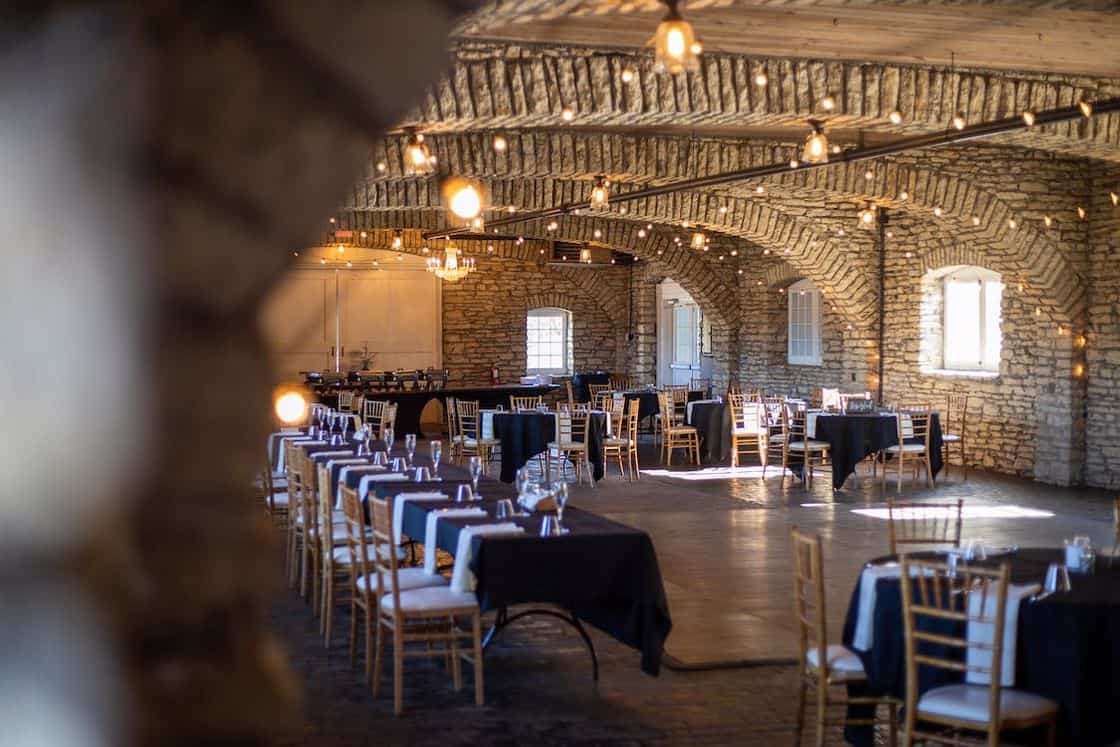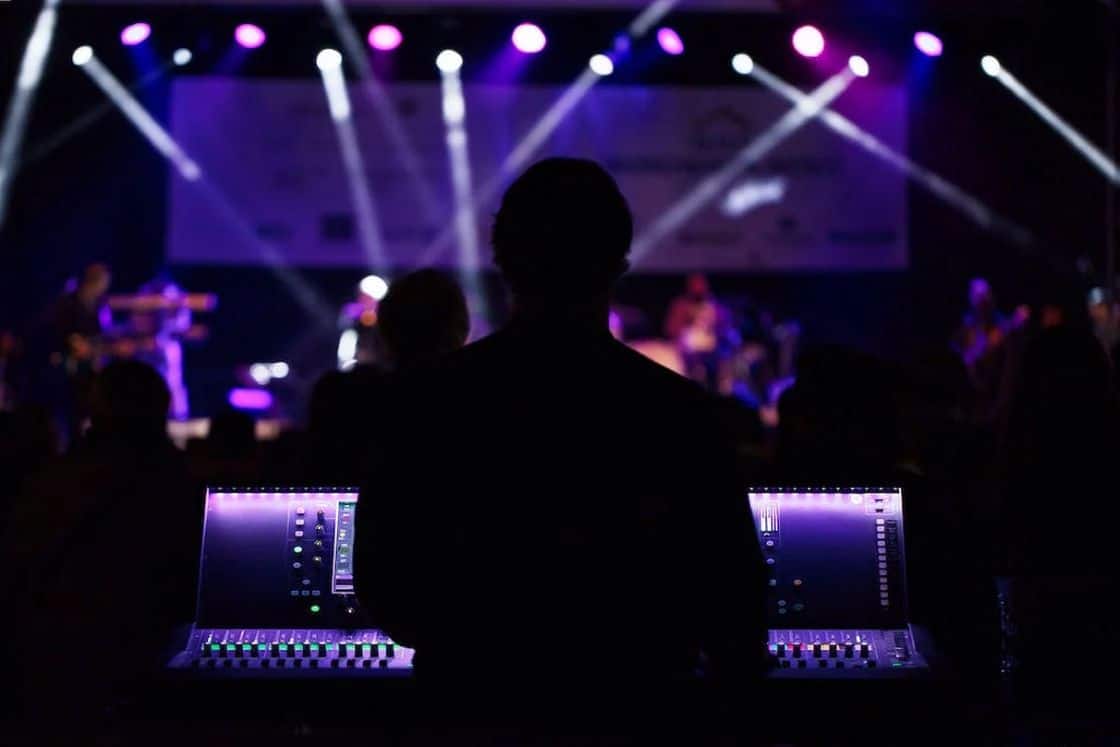Comprehending Event Production: Why It Is Essential for Successful Events
Event production plays a critical duty in shaping effective celebrations. It entails mindful planning, control, and implementation to assure every detail lines up with the event's vision. This process not only improves attendee experiences however likewise promotes significant connections amongst individuals. Understanding the intricacies of event production can substantially affect the total result. What are the crucial elements that add to a successful event, and how can they be effectively handled?
The Duty of Event Production in Producing Remarkable Experiences
Although many elements add to the success of an occasion, event production plays an essential role in crafting unforgettable experiences. This diverse process incorporates various elements, including planning, logistics, and implementation. Efficient event production warranties that every information aligns with the total vision, producing a smooth flow that mesmerizes guests. By collaborating timelines, handling resources, and managing technical facets, event producers establish a foundation for impactful experiences.Moreover, they curate settings that resonate with the target market, improving interaction and psychological link. From choosing suitable venues to integrating ingenious technology, the options made throughout production substantially influence exactly how guests view and keep in mind the event. By prioritizing top quality and attention to detail, event production transforms normal gatherings right into amazing moments, leaving lasting impacts. Ultimately, the competent orchestration of these components specifies the essence of an event, showcasing the relevance of specialist event production in attaining outstanding outcomes.
Key Components of Effective Event Production
Effective event production rests on several key parts that guarantee success. Planning and control establish a strong foundation, while technical setup requirements resolve logistical demands. Additionally, carrying out audience involvement methods boosts the general experience, making the event remarkable.
Preparation and Coordination
Planning and coordination function as the foundation of successful event production, making certain that every information lines up perfectly to create a remarkable experience. Reliable planning entails establishing a clear vision and goals, while coordination entails the thorough organization of logistics, timetables, and sources. A distinct timeline is necessary, guiding all stakeholders through crucial turning points and tasks. Interaction plays a pivotal duty, cultivating cooperation amongst employee, suppliers, and place staff. Routine meetings and updates assist to deal with difficulties promptly, making sure that everyone stays lined up with the event objectives. Ultimately, an organized strategy to preparation and coordination not just boosts performance yet also considerably adds to the general success and satisfaction of the event for participants and organizers alike.
Technical Setup Demands
An effective event depends greatly on its technological setup needs, which include vital elements such as audio-visual devices, illumination, hosting, and connectivity. Audio-visual equipment consists of microphones, speakers, and projectors, making certain that discussions and performances are provided clearly. Appropriate illumination improves the ambiance and highlights essential areas, while presenting supplies the necessary platform for speakers and performers. Connection, consisting of Wi-Fi and electrical accessibility, is important for smooth communication and innovation assimilation. Each component must be diligently intended and implemented, customized to the event's certain needs. Poor technical setups can lead to interruptions, negatively influencing the overall experience for attendees, emphasizing the relevance of comprehensive prep work and attention to information in event production.
Target Market Involvement Approaches

The Significance of Planning and Control
Planning and sychronisation are critical to the success of any type of event production. Efficient timeline management, source allotment techniques, and team communication dynamics play important duties in making certain that all components collaborated seamlessly. Without an organized strategy to these aspects, events take the chance of dealing with delays, budget plan overruns, and miscommunication among group participants.
Effective Timeline Monitoring


While successful event production usually rests on imagination and implementation, effective timeline monitoring remains a vital component that can not be forgotten. A well-structured timeline acts as the foundation of any type of event, making certain that each stage is carried out in a timely fashion. It permits the control of numerous jobs, from place arrangement to visitor arrivals, while protecting against potential traffic jams. By clearly describing deadlines and obligations, event coordinators can keep focus and adapt to unexpected challenges. Additionally, a thoroughly crafted timeline fosters interaction among team participants, advertising responsibility and collaboration. Inevitably, effective timeline management not only enhances operational efficiency however additionally contributes greatly find out to the total success visit their website and smooth execution of the event, leaving participants with a memorable experience.
Resource Allowance Approaches
Reliable resource appropriation techniques are crucial for the effective implementation of any event. Appropriate preparation enables event organizers to identify and disperse resources, such as funds, workers, and products, in a fashion that optimizes performance. By evaluating the particular demands of each aspect of the event, coordinators can focus on jobs and designate sources as necessary. Coordination amongst different departments ensures that all elements, from providing to audiovisual requirements, are appropriately supported. This strategic strategy not just decreases waste but additionally enhances the overall experience for attendees. Additionally, anticipating potential obstacles and having backup plans in position permits smoother procedures. Inevitably, efficient resource allotment adds considerably to attaining event goals and ensuring a memorable celebration.
Group Interaction Dynamics
How can smooth communication among staff member transform the event production procedure? Reliable communication is vital for coordinating jobs, sharing updates, and attending to challenges in real-time. When group participants take part in open discussion, they can rapidly identify prospective issues and establish services collaboratively, minimizing hold-ups and misunderstandings. This dynamic fosters a natural atmosphere where everyone recognizes their roles and duties, causing an extra synchronized initiative. Furthermore, normal check-ins and comments loopholes enhance accountability and guarantee positioning with the event's purposes. By prioritizing communication methods, teams can streamline process, bolster spirits, and ultimately raise the total top quality of the event. Effective celebrations hinge on the capability to connect efficiently, making it an important component of event production.
Enhancing Guest Involvement Through Innovative Layout
Creative design plays a crucial function in boosting attendee engagement at events, as it promotes an immersive setting that astounds participants' interest. By integrating cutting-edge visuals, interactive components, and thematic design, event coordinators can produce memorable experiences that resonate with guests. Thoughtful layout styles promote movement and exploration, motivating guests to engage with display screens and each other.Incorporating innovation, such as increased fact or live ballot, more improves the experience, permitting real-time feedback and communication. In addition, sensory components like lights, audio, and aroma can stimulate feelings and create a much more interesting atmosphere.The usage of narration with style helps convey the event's purpose and message, making it much more relatable for attendees. Ultimately, creative layout not just enhances involvement yet additionally grows links among participants, leaving an enduring perception that extends beyond the event itself. This strategic strategy to layout is crucial for effective gatherings.
Managing Logistics for a Smooth Execution
While the exhilaration of an event can attract participants in, handling logistics is vital find more information to protect a seamless implementation. This entails thoroughly coordinating various components, from place option and layout to food catering and transportation. Efficient logistics management assures that all elements straighten, permitting a smooth flow from enrollment to the verdict of the event.Additionally, a clear communication strategy among all stakeholders is critical. This consists of staff, vendors, and volunteers, who need to be notified of their roles and duties. Anticipating possible challenges, such as tools failing or unanticipated weather problems, can better improve the event's success.Creating an in-depth timeline aids maintain the group on course and permits timely modifications. Ultimately, well-managed logistics not just assist in an enjoyable experience for attendees yet likewise mirror the professionalism and trust and dependability of the organizers, adding to the general success of the celebration.

The Influence of Modern Technology on Event Production
What duty does technology play in forming modern-day event production? Technology has actually become a cornerstone of effective event production, boosting both preparing and execution processes. From sophisticated enrollment systems to interactive apps, technology improves participant management and enhances interaction. Digital event platforms enable organizers to get to bigger audiences, damaging geographical obstacles and promoting hybrid gatherings that incorporate in-person and online experiences.Additionally, audiovisual modern technologies, such as high-definition displays and stereos, elevate the top quality of presentations and efficiencies, guaranteeing a remarkable experience for participants - event production charlotte. Social media combination enables real-time responses and interaction, cultivating neighborhood interaction previously, throughout, and after the event. In addition, data analytics devices assist coordinators in checking participant habits and preferences, allowing tailored experiences that reverberate with varied audiences. Generally, the integration of modern technology in event production not only improves functional efficiency however also enriches participant experiences, ultimately adding to the success of the event
Assessing Success: Determining the Outcomes of Your Event
Success in event production rests on efficient analysis, which involves gauging a range of outcomes to evaluate the overall influence of an occasion. To accomplish this, organizers can utilize both qualitative and quantitative metrics. Measurable measures might include participation figures, ticket sales, and revenue generated, while qualitative analyses may involve guest satisfaction studies and comments forms.Additionally, assessing social networks interaction and media insurance coverage can supply insights right into the event's reach and brand impact. Contrasting these metrics versus predefined objectives assists figure out if the objectives were met.Furthermore, post-event debriefs with the preparation team can reveal lessons found out and locations for enhancement. By systematically evaluating these end results, event manufacturers can improve future events, ensuring continuous development and success. Inevitably, a comprehensive evaluation not only highlights achievements however also notifies critical decisions for succeeding events, promoting a culture of excellence in event production.
Frequently Asked Concerns
What Certifications Should an Occasion Manufacturer Have?
Event producers need to possess strong organizational skills, creativity, and reliable communication capabilities. A background in job monitoring, budgeting, and negotiation is vital. Pertinent accreditations and experience in diverse event types even more enhance their credentials.
Exactly How Can I Decrease Event Production Costs Effectively?
To efficiently lower event production costs, one can simplify vendor selection, negotiate agreements, utilize internal resources, focus on necessary components, implement technology for performance, and discover sponsorship chances to counter expenses without jeopardizing top quality.
What Are the Typical Obstacles in Event Production?
Typical challenges in event production include budget constraints, logistical coordination, supplier monitoring, time restrictions, participant interaction, technological troubles, and unpredicted scenarios - event production charlotte. Each variable can considerably impact the general success and smooth execution of the event
How Do I Pick the Right Location for My Event?
Selecting the ideal place entails considering factors such as location, capacity, amenities, and budget plan. Additionally, reviewing accessibility and atmosphere assures the selected area straightens with the event's objectives and improves the general guest experience.
What Is the Typical Timeline for Planning an Occasion?
The normal timeline for intending an occasion differs, but generally includes stages such as concept advancement, venue selection, supplier sychronisation, promotion, and final prep work, usually spanning numerous months to ensure an effective implementation.